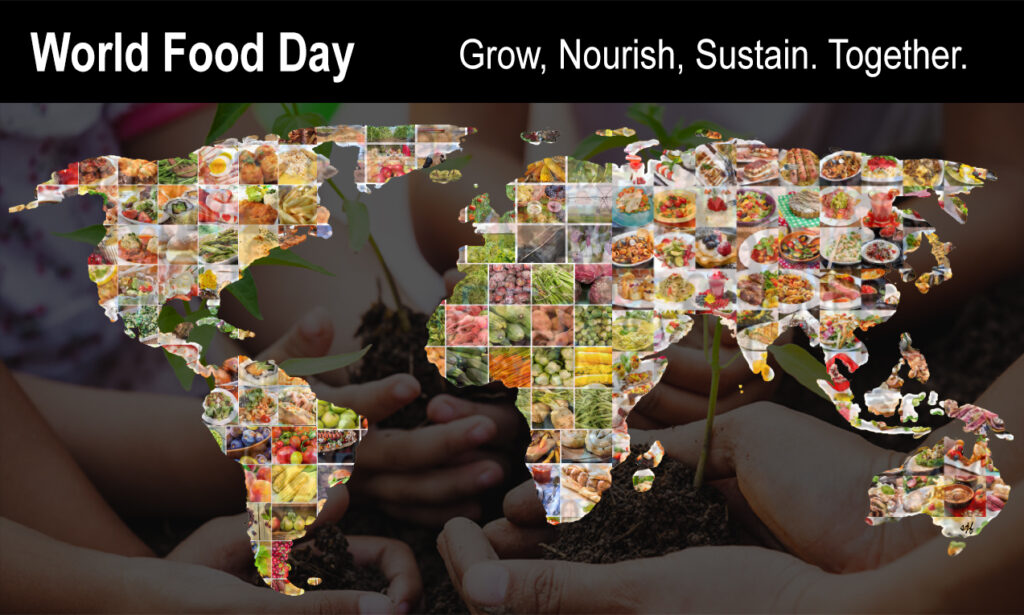Grow, Nourish, Sustain. Together

Either we build a future for all, or
there will be no acceptable future for anyone.
The official World Food Day theme is announced by the Food and Agriculture Organization of the United Nations. The goal is to give focus to World Food Day observances and raise awareness and understanding of approaches to end hunger.
Food is the essence of life and the bedrock of our cultures and communities. Preserving access to safe and nutritious food is and will continue to be an essential part of the response to, particularly for poor and vulnerable communities, who are hit hardest by the pandemic and resulting economic shocks.
In a moment like this, it is more important than ever to recognize the need to support our food heroes – farmers and workers throughout the food system – who are making sure that food makes its way from farm to fork even amid disruptions.
Achieving food security for all is at the heart of FAO’s efforts – to make sure people have regular access to enough high-quality food to lead active, healthy lives.
The three main goals are the eradication of hunger, food insecurity, and malnutrition; the elimination of poverty and the driving forward of economic and social progress for all; and the sustainable management and utilization of natural resources, including land, water, air, climate and genetic resources for the benefit of present and future generations.
The objectives of World Food Day are to:
Don’t waste water.
Diversify your diet.
Keep fish populations afloat.
Keep soils and water clean.
Buy organic
Energy-efficient is best
Use solar panels or other green energy systems
Buy only what you need
Pick ugly fruit and vegetables
Don’t let labels fool you
Limit your plastic
Recycle paper, plastic, glass, and aluminum
Store food wisely
Love your leftovers
Make plant food
Be rubbish-savvy
Make cities greener
Shop local.
Protect forests and save paper
Bike, walk or use public transport
Be a conscientious consumer
Keep up to date on climate change
Be an advocate!
*Encourage attention to agricultural food production and stimulate national, bilateral, multilateral, and non-governmental efforts to this end;
*Encourage economic and technical cooperation among developing countries;
*Encourage the participation of rural people, particularly women and the least privileged categories, in decisions and activities influencing their living conditions;
*Heighten public awareness of the problem of hunger in the world;
*Promote the transfer of technologies to the developing world; and
*Strengthen international and national solidarity in the struggle against hunger, malnutrition, and poverty and draw attention to achievements in food and agricultural development.
To learn more about World Food Day, visit the Food and Agriculture Organization of the United Nations (FAO).
Follow FAO World Food Day on Twitter.



